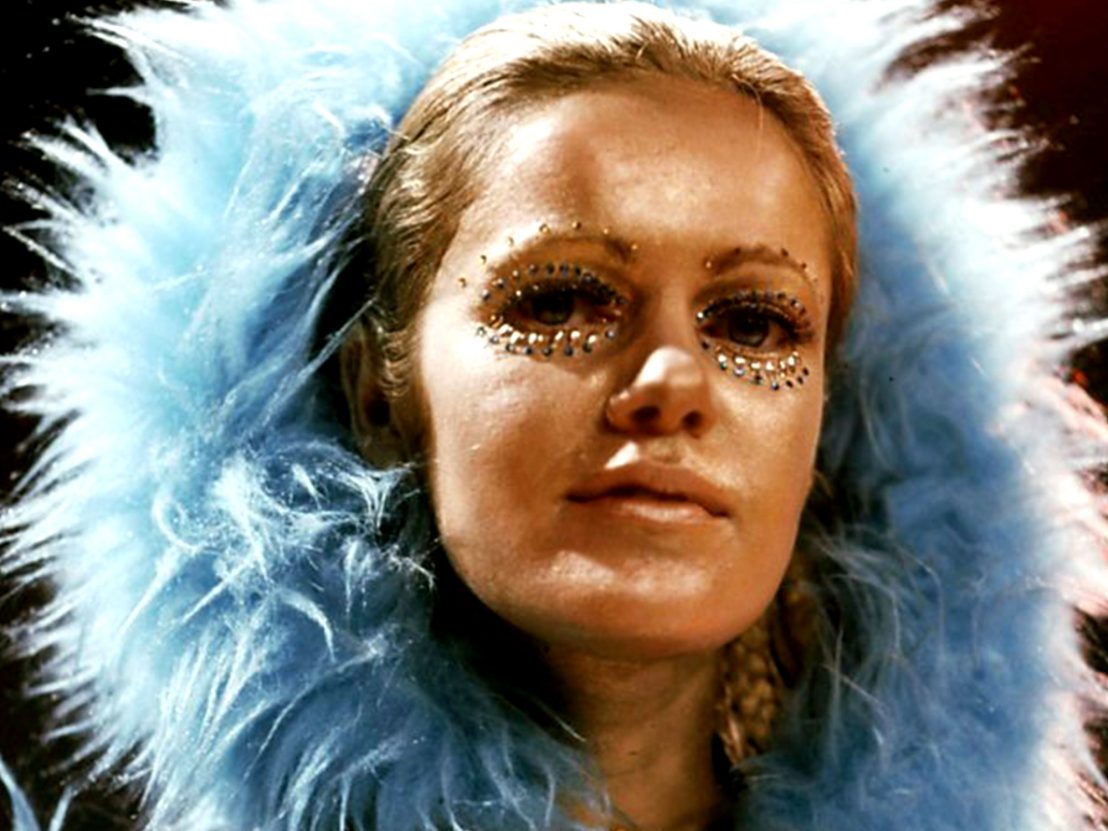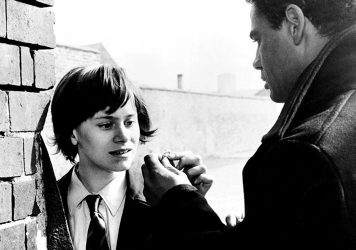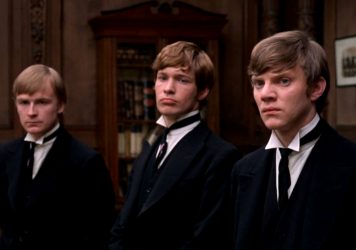
It’s often suggested that we are living in a future designed by JG Ballard. Yet Ballard was only one of a number of figures in postwar Britain to come disturbingly close to mapping the social, cultural and political trajectories of the new millennium. Working in television as opposed to literature, Nigel Kneale was another such figure, one whose visions now seem equally prescient.
Though more concerned with the ghostly, Kneale also had an eye for socio-cultural trends, courting similar controversy to Ballard through biting, fantastical scripts. This manifested especially effectively in his radical episode of the BBC’s Theatre 625, The Year of the Sex Olympics, a drama directed by Michael Elliott which feels like a horrific foreshadow of our current epoch’s addictive broadcasting and empathy-draining content.
Kneale’s unusual play follows a group of characters in an unnervingly recognisable future. Like all cloying utopianisms, this future masks a horrifying dystopian reality. At the heart of the setting, simply called Output, sits the entertainment system which keeps the Lower Grade citizens numb, experiencing life second-hand. Nat (Tony Vogel) is a senior figure in the Sports Sex programme, a vitally important show with it being the year of the Sex Olympics.
When the new lover of Nat’s ex Deanie (Suzanne Neve) commits suicide during a live broadcast, the Co-ordinator (Leonard Rossiter) agrees to test out a new, darker programme called The Live Life show, now produced by Nat’s colleague Lasar (Brian Cox). Nat, Deanie and their estranged daughter live a tough and harrowing life on an island, all wired for sound and vision. But why is their growing pain and torment such a boon for viewer appreciation and reactions?
It’s easy to see why The Year of the Sex Olympics is said to have predicted the rise of reality television, but there’s more to it than that. The play certainly foreshadows the celebrity-obsessed vortex that would spiral out of control in the decades that followed, especially after the digital revolution. Rather, Kneale anticipated the addictive, controlling qualities of screen time – especially when that screen shows things purporting to be true – and the power structures that go to extreme lengths to pacify whole communities with such content. The corporate culture lingo of the play is very much of its time but its likenesses can certainly be found today in a variety of media industries.
The play is primarily about the abuse of mass docility, where experience is negated in every shape or form outside of that found on screens. “Sex is not to do, sex is to watch,” as Nat puts it. It’s an idea that speaks with startling clarity in an age of broken social abilities, mass depression and pornography addiction. Even the Higher Grade people of Output who work at the station have a sociopathic streak. These Higher Grades enjoy some of the things that they withhold from the society around them, such as sex. But it is again a commodity that can be passed off whenever they feel like it. They simply vocalise that process rather than swiping left.
Empathy has been decimated by living totally within a screen-dominated realm. The audience disturbingly only laughs for the first time when the man dies during the broadcast, and then later when Nat and Deanie face the awful consequences of their slow destruction on the island. They’re not eating insects or dumping each other in an exotic location but the humiliation is shared between their reality and ours: it carries a currency.
It’s a macabre circus that we only just see beginning to develop as the play ends and one that bears more than a fleeting resemblance to the current attention surrounding reality television and its increasingly demented cousins, YouTube, Tik-Tok and the like. It’s just that the ability to broadcast has been quite happily opted in to; we are voluntarily a part of this mass surveillance whereas the play at least explains the lack of subversion and resistance to be caused by the broadcast machine itself.
Output is a society so reduced to catatonia by disposable entertainment that genuine pain and death become the only effective spectacle left. Television in Kneale’s world is voyeuristic but essentially manages to convince its viewers otherwise, that this is all normal. The same disassociation from voyeurism has occurred on a vast scale in our own world, from the very first series of Big Brother, right through to Love Island and its growing array of associated mental breakdowns and suicides.
The spectacle is ongoing thanks to the digital revolution and the success of its monetisation, a spectacle that continues even once the official cameras have turned off. For a play from over fifty years ago to have foreshadowed this shows Kneale’s vast skills and the daring nature of television in its true golden age of radical experimentation. For a society such as ours to have calmly accepted such a reality, however, shows little else but our own severe self-denial.
Published 20 Apr 2020

Shelagh Delaney’s voice stood out from the angry young men who dominated British cinema in the mid 20th century.

By Luís Azevedo
Lesser-known works that broke the mould, from Kenneth Macpherson’s Borderline to Sally Potter’s Orlando.

By Benjy Taylor
Lindsay Anderson’s tale of rebellion in a ’60s private school is a vital dissection of class and establishment.